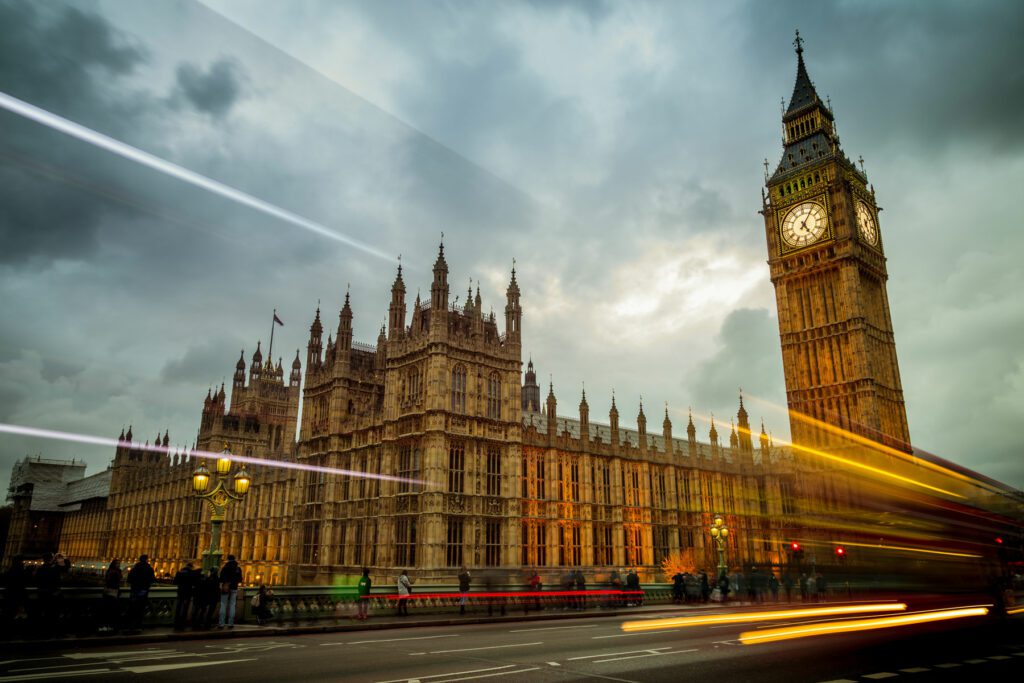Author
Last week, the Conservatives, Labour and Liberal Democrats released their manifestos ahead of the general election on 4 July. Below, we highlight their key policies in respect of the Natural Capital and Agricultural sectors.
Nutrient Neutrality
Conservative and Labour manifestos tackle nutrient neutrality to differing degrees.
The Conservatives would abolish ‘the legacy EU nutrient neutrality’ requirement, further to their attempt in September 2023 which was blocked by the House of Lords[1], in order to ‘unlock the building of 100,000 new homes’. Note that developers would still be required to pay a ‘one-off mitigation fee’ to avoid net additional pollution.
Labour would implement ‘solutions to unlock the building of homes affected by nutrient neutrality without weakening environmental protections’. There is no further detail, but a change of tack is perhaps implied.
The Liberal Democrats do not directly reference nutrient neutrality in their manifesto. That said, they commit to increased funding of the Environment Agency and Natural England, and promise to strengthen the powers of local authorities. Local authorities and Natural England are central to carrying out and approving (respectively) the assessments that underpin nutrient neutrality schemes. The Liberal Democrats also pledge to support farmers in helping to reduce the pollution of rivers, streams and lakes. It is not clear whether this would be by supporting a nutrient neutrality credit scheme.
Biodiversity Net Gain (“BNG”)
BNG became effective in February following the implementation of secondary legislation[2]. It is therefore unsurprising that the Conservative manifesto, while heralding the Environment Act 2021 (which provides the legislative framework for BNG), makes no new pledges in this area.
Labour’s manifesto commits to meeting the ‘Environment Act targets’ and promoting biodiversity – no re-writing of the legislation would therefore be anticipated.
The Liberal Democrats would ensure new developments result in ‘significant net gain for biodiversity, with up to 100% net gain for large developments’. The Environment Act 2021 requires qualifying developments to exceed their pre-development biodiversity by at least 10%; the Liberal Democrat position is therefore significant.
Note that the government’s Planning Policy Guidance on BNG states that ‘plan-makers should not seek a higher percentage than the statutory objective of 10% biodiversity net gain unless justified‘[3]. Carter Jonas report that some local planning authorities have already adopted BNG policies requiring biodiversity uplifts of over 10%, or are seeking to achieve similar results through Local Plans[4].
Agriculture Act 2020 (“AA 2020”); Environmental Land Management (“ELM”) schemes and Food Security
The Conservatives will increase the UK farming budget by £1 billion over the course of the next parliament. This should assist farmers ‘boost domestic food production on top of maintaining our [the Conservatives’] approach to ELM Schemes’. The manifesto promises to use future rounds of the Landscape Recovery Scheme, that being the third tier of the ELM schemes, to support local projects.
The Liberal Democrats pledge an extra £1 billion a year to support the ‘the rollout of the new ELM schemes’. They would introduce further ‘public money for public goods’ programmes contingent on farmers opting into an ELM scheme. Note that ‘public money for public goods’ was the underpinning tenet of the ELM schemes, introduced by the AA 2020, which phased out Basic Payment Schemes under EU legislation. The Liberal Democrats would also commit funds to assist farmers transition to new environmental farm payment schemes.
Labour promise to make environment land management schemes ‘work for farmers and nature’.
Perhaps reflective of recent agricultural protests in London and Cardiff, all parties have put food security at the heart of their agricultural policy. Both Conservative and Labour would introduce a Land Use Framework, while the Liberal Democrats refer to a ‘National Food Strategy’. The government recently reacted to concerns over food security by limiting the amount of land that farmers could take out of food production under the Sustainable Funding Incentive, the first tier of the ELM schemes.[5]
The above is not an exhaustive list of the parties’ policies in the Natural Capital and Agricultural sectors. We append links to each party’s manifesto for your further review.
Conservatives Manifesto: Conservative Manifesto 2024 (conservatives.com)
Labour Manifesto: Change – The Labour Party
Liberal Democrat Manifesto: For a Fair Deal – Liberal Democrats Manifesto 2024 – Liberal Democrats (libdems.org.uk)
[1] Nutrient Neutrality: What is happening? – Michelmores
[2] BNG Secondary Legislation Analysed – Michelmores
[3] Biodiversity net gain – GOV.UK (www.gov.uk)
[4] Biodiversity Net Gain local plans| Planning and Development | Carter Jonas
[5] SFI scheme information: expanded offer for 2024 – GOV.UK (www.gov.uk)
Print article

